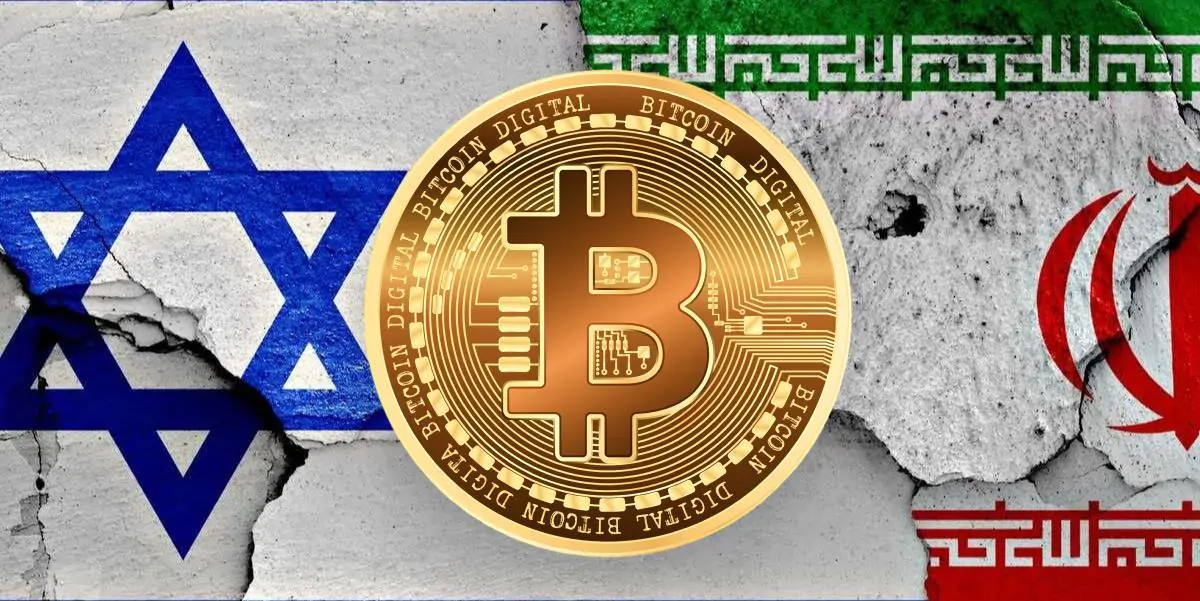Portugal has earned a reputation as one of Europe’s most crypto-friendly countries. According to Statista, the crypto revenue in this country is going to reach $294.2 mln in 2025 and the average number of users is expected to reach 3.40m users by 2026.
03.10.2024

Historically, the cryptocurrency market has shown high sensitivity to geopolitical events. Major conflicts often result in increased volatility, with traders reacting swiftly to news and developments.
The constant escalation in tensions between Israel and Iran always sends shockwaves through the cryptocurrency market, particularly Bitcoin. Experts’ biggest fear is the possibility of a broader regional war. A full-scale Israel and Iran conflict raises concerns about the stability of oil supplies and global markets, which in turn affects investor sentiment towards riskier assets like Bitcoin. Traditionally, during times of geopolitical uncertainty, investors tend to flock to “safe haven” assets such as gold and oil, further exacerbating the sell-off in cryptocurrencies.
Israel and Iran. Conflict in 2024
On October 1, 2024, Iran launched a series of missile attacks on Israel, a move that has intensified an already fragile geopolitical situation in the Middle East. This conflict has not only raised concerns about regional stability but also significantly affected Bitcoin’s price dynamics.
Following the missile strikes, Bitcoin price experienced a sharp decline, dropping over 3% to approximately $61,083. This downturn is particularly noteworthy, given that Bitcoin had previously traded above $63,000 just days before the attacks. The sudden sell-off resulted in significant liquidation within the cryptocurrency market, with approximately $142 million wiped out in a matter of hours. Over 95% of these liquidations came from long positions, highlighting the panic among investors seeking to mitigate risks in the face of escalating geopolitical tensions.
Israel and Iran. Conflict in 2025
The conflict between Israel and Iran flared up again in 2025 when, on 13 June, US and Israeli airstrikes hit Iranian nuclear sites. This caused the price of Bitcoin to drop below $100,000 (by up to 3%), while the price of Ethereum fell by around 5%, and the price of many altcoins sank even further. In total, over $1.16 billion worth of cryptocurrency positions were liquidated within 24 hours of the initial attacks.
The new conflict cycle also affected altcoins. Solana and Sui each fell by around 8%, and even large-cap tokens such as Binance’s BNB, Ripple’s XRP, and Dogecoin experienced modest declines.
The global crypto market fell by around 6% due to global political risk. Crypto whales were also hit hard during the sell-off, losing millions of dollars. Iran’s largest exchange, Nobitex, was also reportedly hacked, losing around $90–100 million.
However, risk sentiment rebounded after news of the US-brokered ceasefire emerged. Bitcoin quickly recovered to the $105,000–$105,300 range, rising by over 3% in a day, while Ether rose by 6–7%. Solana (SOL) and Cardano (ADA) each surged by 7% within 24 hours.
Thus, crypto has once again proven sensitive to geopolitical tensions. While the recovery was rapid, it’s no surprise that public confidence was shaken by the appearance of a geopolitical threat.
How Israel-Iran news influence the global market
The Israeli response to Iranian aggression remains a critical factor in the market’s trajectory. Israel has issued stern warnings, asserting that it will retaliate against any attacks, particularly those targeting its nuclear and oil facilities. This heightened military readiness adds an additional layer of uncertainty to an already volatile situation, as the potential for further escalation looms large.
In the case of Israel and Iran conflict, the immediate fear is that a prolonged military engagement could disrupt supply chains and lead to a global economic downturn. Such a scenario would likely result in further declines in Bitcoin’s price as investors seek refuge in more stable assets.
The conflict also became a litmus test for a significant market divergence between Bitcoin and the broader altcoin landscape. Altcoins suffered much bigger losses compared to Bitcoin. Investors showed a preference for the relative safety of BTC and ETH over more speculative alts. Small altcoins fell by double digits during the conflict.
The critical question for investors is how to navigate this turbulent landscape. It’s essential to stay informed about Israel-Iran news and remain vigilant in monitoring market trends. Keeping a cool head and avoiding panic selling will be crucial during these volatile times. As always, diversification and a long-term investment strategy are key components to weathering the storm.
In conclusion, the ongoing conflict between Israel and Iran is poised to have significant implications for Bitcoin and the broader cryptocurrency market. As tensions rise and the potential for military escalation looms, investors must tread carefully, balancing the risks of volatility against the allure of potential returns. Staying informed and adaptable will be essential for navigating this rapidly changing landscape.




